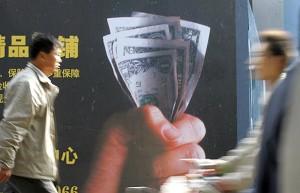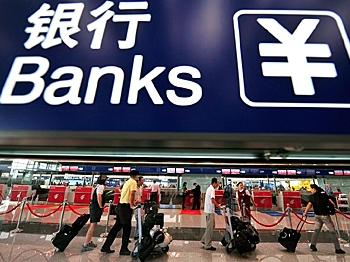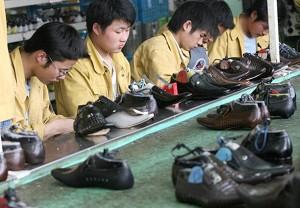In the past year, the Chinese economy has not gradually begun to cool down as expected by the Chinese communist regime’s plan, but continued to increase at a speed higher than any previous year. For years, different opinions on the Chinese regime’s macro-control policy have been held between the central and local authorities, experts and policy makers. Regardless of whether China needs a macro-control policy, almost everyone agrees that the effect of the regime’s macro-control policy has not been good. For example, over-investment is not effectively controlled; real-estate prices continue to grow; foreign trade surplus and foreign exchange storage has steadily increased.
Macro-control means that the Chinese regime takes on not only monetary policies and finance policies used by western governments, but also some administrative duties inherited from a planned economy. The failure of these policies accumulatively reflects the seriousness and complexity that the Chinese economy faces. Many difficulties have actually been accumulating for a long time. Lacking a cyclic, complementary system and depending on policy adjustment and administrative intervention cannot solve these problems. There are four main problems that are most prominent in the Chinese macro-economy.
First is the income gap problem, which receives much attention from society and causes people dissatisfaction. A growing income gap in China has not only been reflected between the coastline and mainland, major cities and villages and different careers, but also among social groups within the same area. Although the central regime already noticed this phenomenon, it only focused on western and northeastern development, agricultural tax exemptions, and establishing an urban low-income protection system to lighten the conflict. However, the gap is still growing. For example, the Chinese regime’s policy of supporting western development has been out for seven years, but the newest statistic shows that the income difference between eastern and western regions has been becoming larger and larger.
The second is the imbalance between consumption and investment. This imbalance is still unresolved and has caused other economic structural problems. For a relatively long period of time, China’s consumption, especially residents’ consumption, has been at a low state. Consumption only accounts for about 40 percent of the national income. It is not only much lower than the 70 percent of most developed countries, but also much lower than the 60 percent of most developing countries. Because of insufficient consumption and too much saving, a lot of low rate investments are promoted, this sets a time bomb for a future financial crisis. Simultaneously, it strengthens the dependence of the Chinese economy on the oversea market.
Thirdly, China’s economy has come to rely more and more on foreign countries. In the past few years, China has enjoyed an overwhelming trade surplus and a large quantity of foreign exchange reserve. China’s participation in economic globalization has been an important factor that has pushed China’s economic growth rapidly. However, because China is a developing country, its long-term continual double surplus is very confusing. On one hand, it shows how the exportation revenue has not really benefited the average people; on the other hand, it shows how China has not effectively utilized foreign funds.
Fourthly, there is absolutely no sign of alleviation on environmental deterioration or consumption of natural resources. Objectively speaking, the Chinese communist regime has already recognized the environmental damage caused by the constant pursuit of economic growth and has set goals for lowering natural resource consumption and decreasing pollution. During the past year, local authorities and businesses hadn’t yet really responded. In the latest document from China’s National Environmental Protection Agency, all the provinces and cities claimed they had successfully met the goals for environmental protection. However, the majority of provinces and cities had produced fraudulent statistics to meet these goals.
The macro-control of the Chinese communist regime is not able to effectively resolve these issues. This is because they are governed by many factors, the most critical being that China cannot risk the slowing down of its economic growth. Because of how China’s revenue distribution is structured, lowering economic growth would directly impact the low-income group. Obviously, from a political point of view, the regime has no confidence in whether this group can sustain the impact from even worse unemployment rates and more severe income reductions.
Meanwhile, speaking from the structure of financial distribution, because the revenue from local regimes can only cover daily expenditures, the one first to feel the pressure of the slowing down of economic growth would be the central regime. Reduction of the central regime’s revenue contradicts its goals, such as supporting underdeveloped local regimes and increasing social benefits for lower-income groups. Meanwhile this reduction would also loosen the central regime’s control over local regimes. This is not what the central regime is willing to risk.
Because of many governing factors, including China’s lack of a normal system to constantly coordinate the conflicts resulting from different developing goals, all the responsibilities fall on the central regime. As a result, the regime’s policy often has been to pace back and forth among different goals to seek social stability. From the short-term point of view, this phenomenon undoubtedly avoids conflicts, but in fact it has done nothing but defer the conflicts to the future. This kind of regime lacks responsibility and integrity. From this point of view, 2006 was a year that the Chinese communist regime demonstrated its lack of vision and capability to manage economic control.



